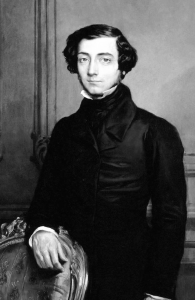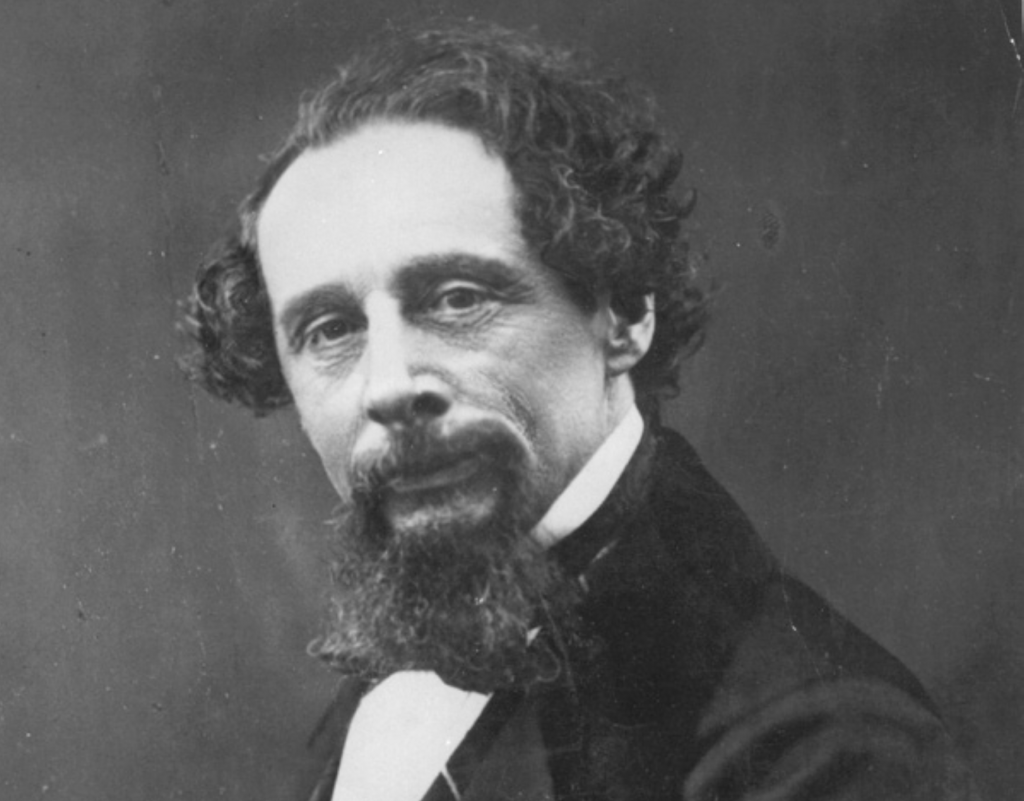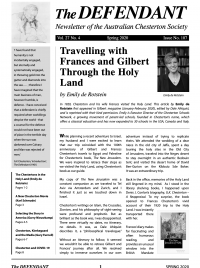
A perennial issue in our media-saturated age is the inevitable selectivity of judgment on the part of any author or news outlet. What to report and focus on – and what to ignore or even suppress? Garry Nieuwkamp, a regular contributor to The Defendant, reflects on this issue in relation to Chesterton’s writings on America.
In her book Stonewalled, (2014), Sharyl Attkisson documents the decline in investigative journalism after having worked in the industry for over thirty years. Having caught the government of the United States in a scandal of its own making (the details are not important), she found herself being intimidated, harassed, and ultimately spied on by the very government she was investigating.
The media itself was unhelpful. The belief that the traditional U.S. media might be motivated solely to get at the unbiased truth behind a story was becoming increasingly naive. ‘Fake news’ was being normalized. From Hillary Clinton’s having ‘to duck and run for cover to escape the flying bullets’ on landing in Bosnia, to estimation of crowd size at an inauguration address, ‘fake news’ is easy to identify if you happen, for example, to have been on the tarmac with Clinton, or present in the inaugural crowd.
What cannot so easily be identified as ‘fake news’ are the stories that ought to have been told but were never given the green light.
The point to make is that journalism is imbued with value judgments at every level, and the prism through which the world is viewed will colour the reporting. Chesterton, who saw himself as a journalist first and foremost, is no exception to this observation.
Chesterton made two trips to America in his lifetime – the first during the presidency of Warren G. Harding (1921-23), the second during Herbert Hoover’s (1929-33). On both occasions he published an account of his travels – following his first trip, What I Saw in America (1922), and a decade later, Sidelights on New London and Newer York (1932).
Travel writing is not new and Chesterton’s accounts of his travels belong to a long tradition. In fact, it is difficult to read Chesterton’s What I Saw in America and Sidelights without calling to mind Alexis de Tocqueville and Charles Dickens, for example, both of whom wrote accounts of their travels that remain classics. Both reflect a particular worldview and had particular interests that focused their attention on what was seen – and pace Attkisson, what was not seen.
The French novelist Céline noted that fiction and truth can have an uneasy relationship. Think of Hilary Mantel’s re-imagining of the character of Sir Thomas More and try to tease apart the truth from fiction. Chesterton is correct in warning at the beginning of Sidelights: ‘The critic is really disliked, not because he treats wrong things as wrong, or even as exceptionally wrong; but because he treats himself as exceptionally right.’
Chesterton is nervous about writing about America and is consequently concerned about a ‘shocking exhibition of mildness and tact.’ He is worried about failing ‘to condemn things that really ought to be condemned,’ a failure that puts the reader on notice.
Every writer has these choices to make and, ‘in judging the New World,’ Chesterton tries ‘to avoid the least suggestion that the judge himself is not in danger of being judged.’
Searching for answers
De Tocqueville’s family had a long association with the French monarchy. His parents were imprisoned in the Bastille, and his travels in America were influenced by his family’s memory of the Terror and subsequent events. He wanted to understand the nuts and bolts of a functioning republic, so he was constantly making comparisons to home.

When Chesterton writes, ‘America is the only nation in the world that is founded on a creed,’ it was de Tocqueville searching for answers, who elucidated the creed and who ‘confessed to seeing more than America.’
‘I sought there,’ he wrote, ‘an image of democracy itself, of its penchants, its character, its prejudices, its passions; I wanted to become acquainted with it if only to know at least what we ought to hope and fear from it.’
When Chesterton compares the great experiment of democracy in America to a melting pot, he remarks: ‘the melting pot must not melt.’ It has a certain shape and substance. De Tocqueville sees the character of Anglo- American civilization, the shape and substance of the melting pot, if you like, as ‘the product of two perfectly distinct elements that elsewhere have made war with each other, which in America, they have succeeded in incorporating somehow into one another. I mean to speak of the spirit of religion and the spirit of freedom.’ They have been incorporated in one another because ‘the township had been organized before the county, the county before the state, the state before the union.’ As Chesterton was quoted by a journalist as saying: ‘Direct government as you get in the village or the parish is best.’
Dickens and slavery

Dickens, on the other hand, was not as sensitive as Chesterton to offending people, in his critique of America following his trip in 1842 during the presidency of John Tyler (1841-45). His experience of the workhouse attuned him to abuses of power, and his American itinerary takes in a blind and deaf school, mental asylums, factories and prisons.
Dickens is horrified by slavery and is contemptuous of the violence towards the slaves. ‘The sensation of exacting any service from human creatures who are bought and sold … is not an enviable one.’
Critic of capitalism and puritanism
So what exactly did Chesterton see in America? How does Chesterton see the world? Two themes immediately come to mind. He is a critic of capitalism and he dislikes puritanism. He arrived in America during the early days of Prohibition and immediately notices that it is the working class ‘who can be made to work if only they can be kept from festivity’.
For Chesterton, drinking is a part of life. If Prohibition in the cause of worker efficiency can be applied to that, ‘it can be applied to anything.’ ‘Fun is freedom; and in that sense is an end in itself. It concerns the man not as a worker but as a citizen, or even as a soul; and the soul in that sense is an end in itself. That a man shall have a reasonable amount of comedy and poetry and even fantasy in his life is part of his spiritual health which is for the service of God; and not merely for his mechanical health, which is now bound to the service of man.’
Chesterton wants to destroy the capitalistic system because he believes ‘it makes free men more servile than slaves,’ so this colours what he sees. He has Main Street in his sights. He explains to a journalist: ‘I am a democratic Bolshevist, not a socialistic Bolshevist. I believe no one class should rule the masses’.
So this is the book that Chesterton writes. While he sees the racial divide, he has little to say given that he is travelling during the era of Jim Crow and the reawakening of the Ku Klux Klan. He suggests that, regarding the Negro: ‘I do not think I have anything particularly valuable to say or suggest. I do not profess to understand this singular dark and intricate matter; and I see no use in men who have no solution filling up the gap with sentimentalism’.
Chesterton focuses his criticism on capitalism, which he sees as ‘a fence or gate erected across a road’. He doesn’t see the use of it, and gives reasons for wanting to clear it away. It motivates him to make the case and write the book. He draws our attention to one blight but barely registers the other. He’s interested in slavery, but it is the slavery of the modern economic system rather than the historical legacy of racial oppression.
Yet it is almost impossible to be disappointed with Chesterton’s writing, even if his choice in analysing America was to focus on certain conditions rather than others. The paradox is, that if it is possible to be disappointed with Chesterton,itisnotwiththebooksthathewrote,but with the book he didn’t write. I’d have forgiven the sentimentalism!
